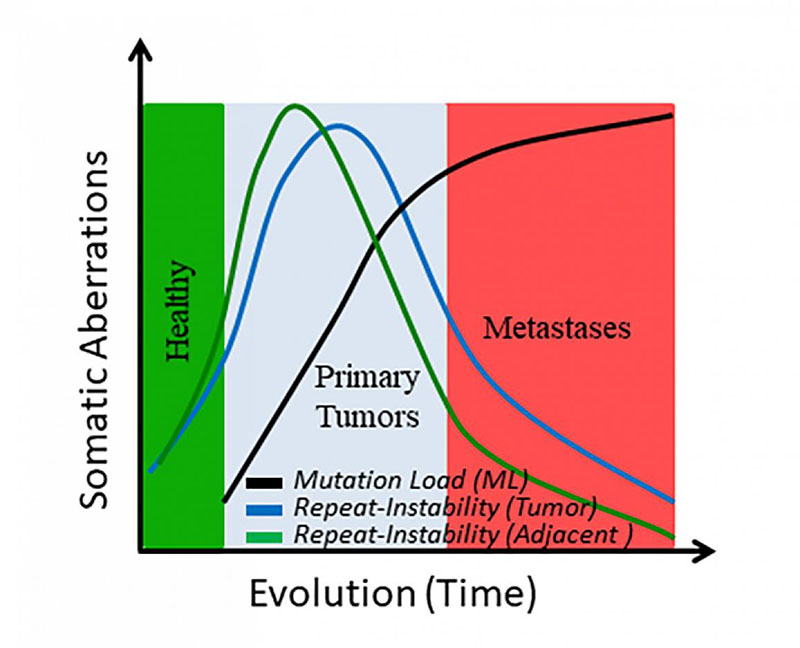IRP researchers uncover role of repetitive DNA and protein sequences in tumor evolution
Discovery may be useful in cancer diagnosis
A team of researchers from the National Library of Medicine (NLM), part of the National Institutes of Health, and collaborating academic research institutions developed a method to measure a type of gene mutation involved in the evolution of cancer. This type of mutation, called “repeat instability,” may be useful in early cancer diagnosis. Findings were published this week in the Proceedings of the National Academy of Sciences.
Cancer is primarily caused by mutations in certain genes. The most thoroughly studied cancer-associated mutations involve the substitution of one nucleotide of DNA for another in genes known as oncogenes and tumor suppressors.
In this study, the researchers identified a different type of mutation active in cancer, one that increases and/or decreases repetitive segments of DNA and protein sequences in various genes. These changes are collectively named “repeat instability.”
This page was last updated on Friday, January 21, 2022
